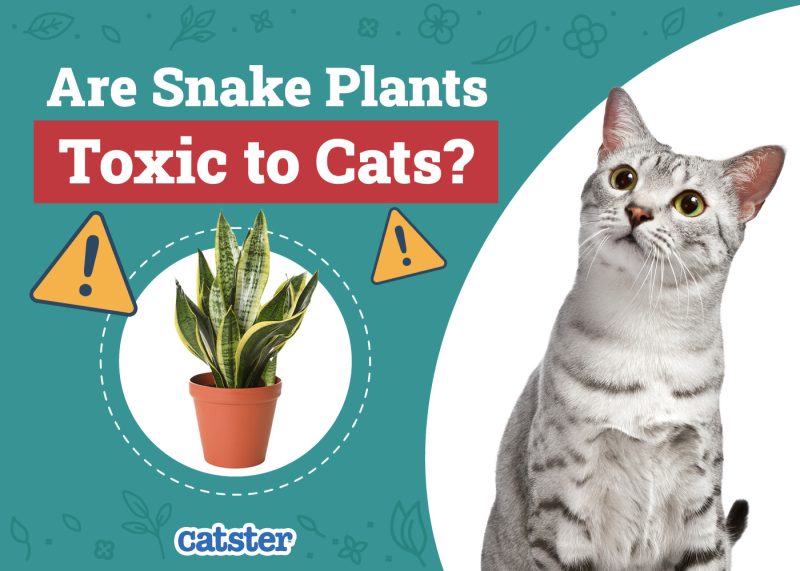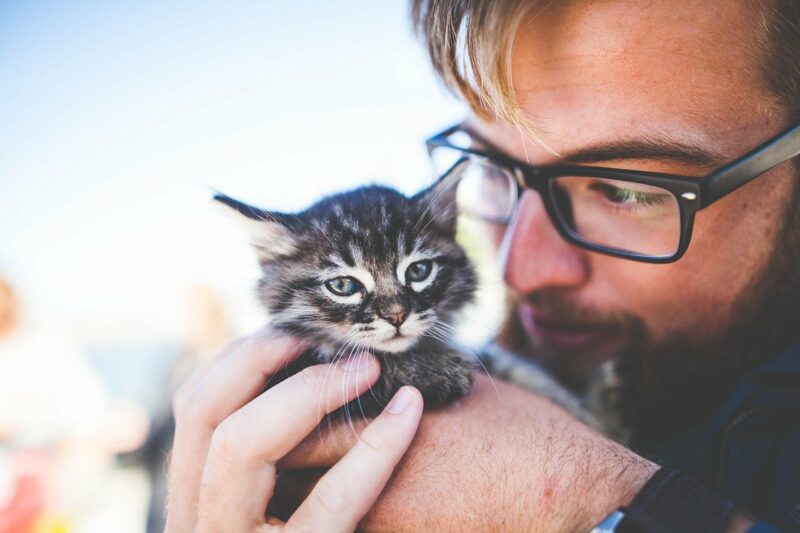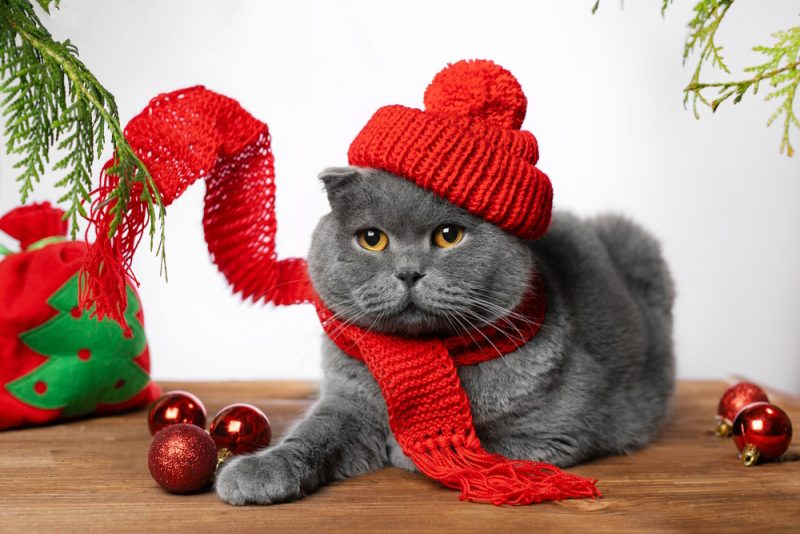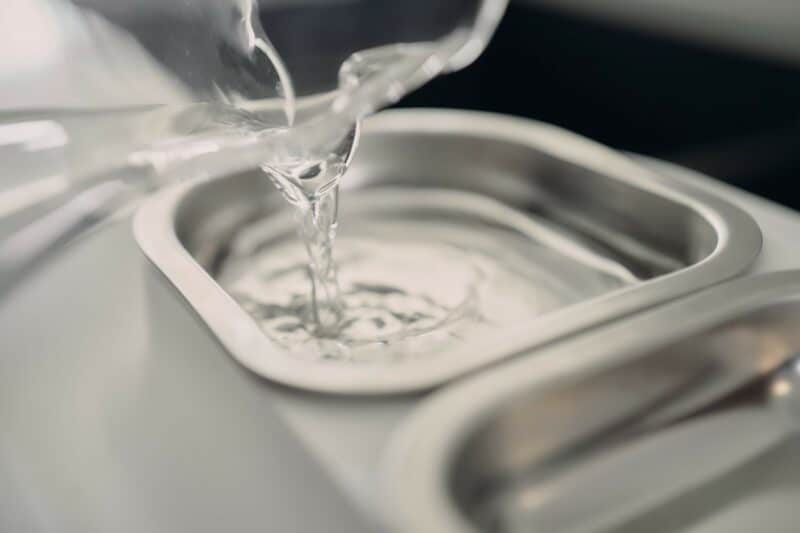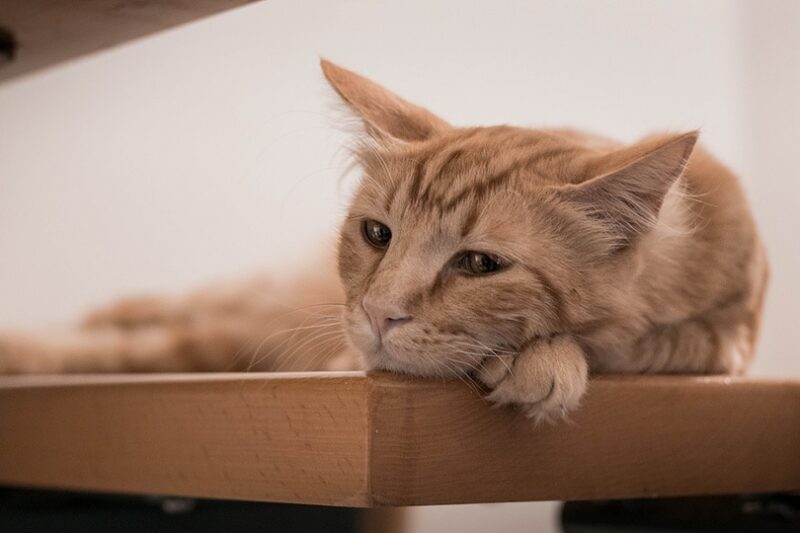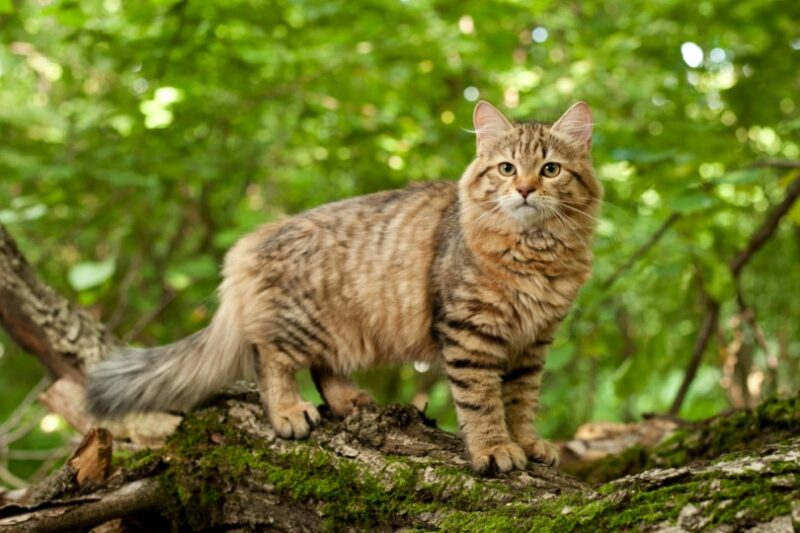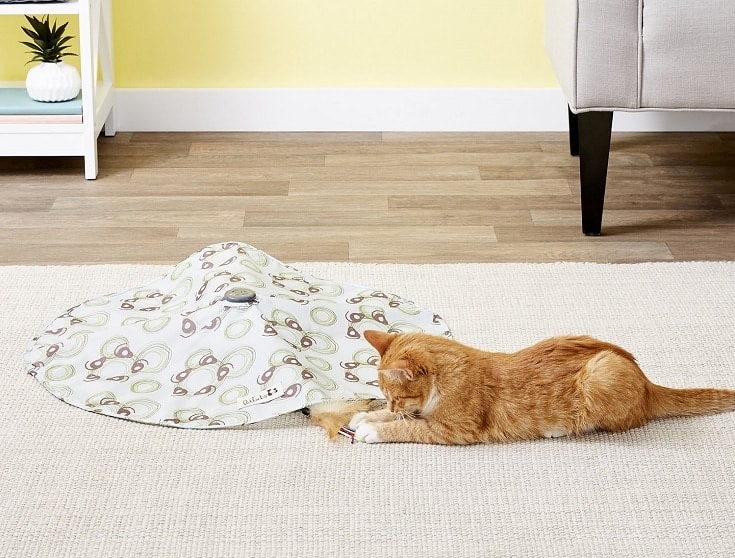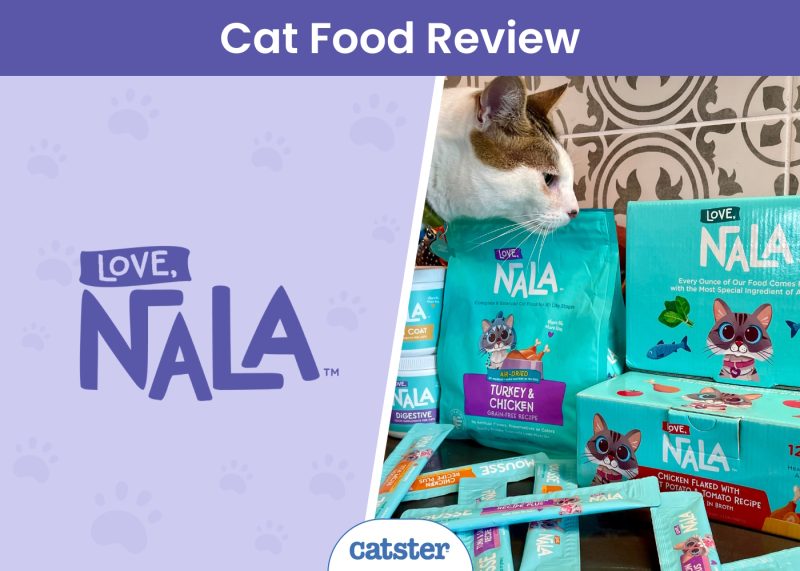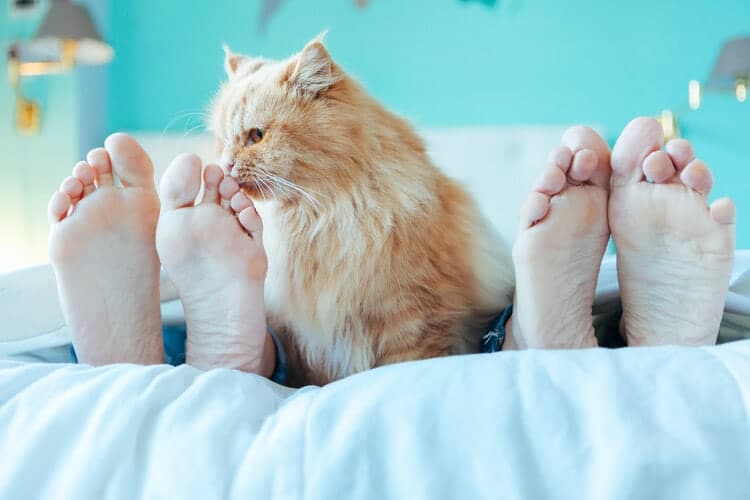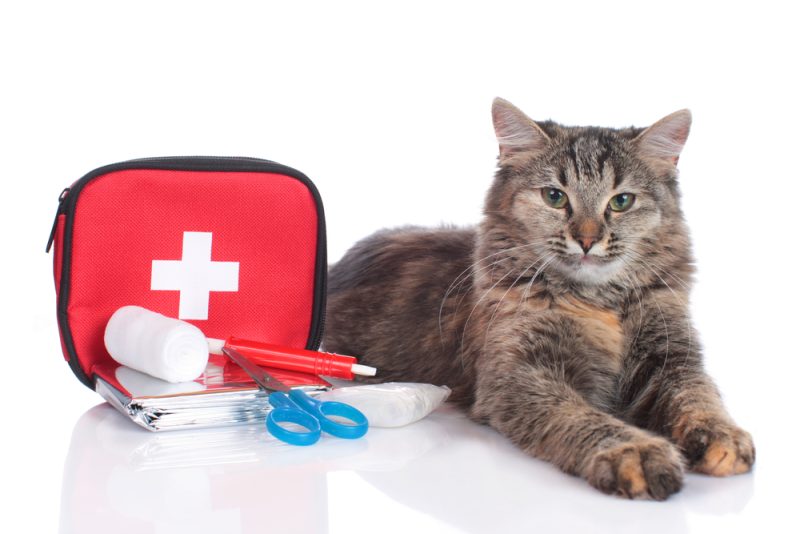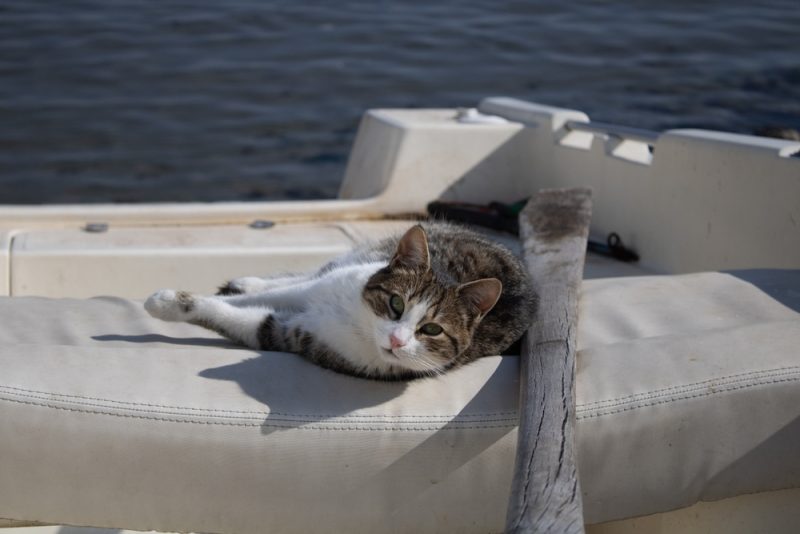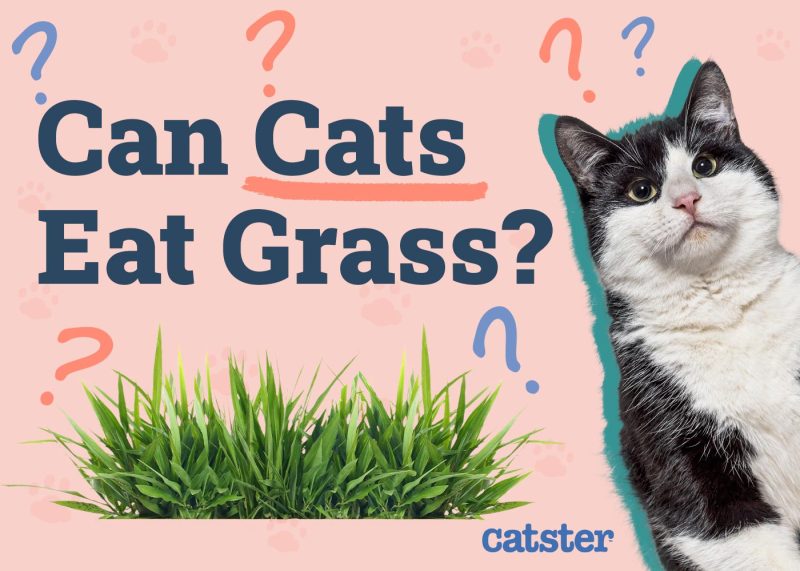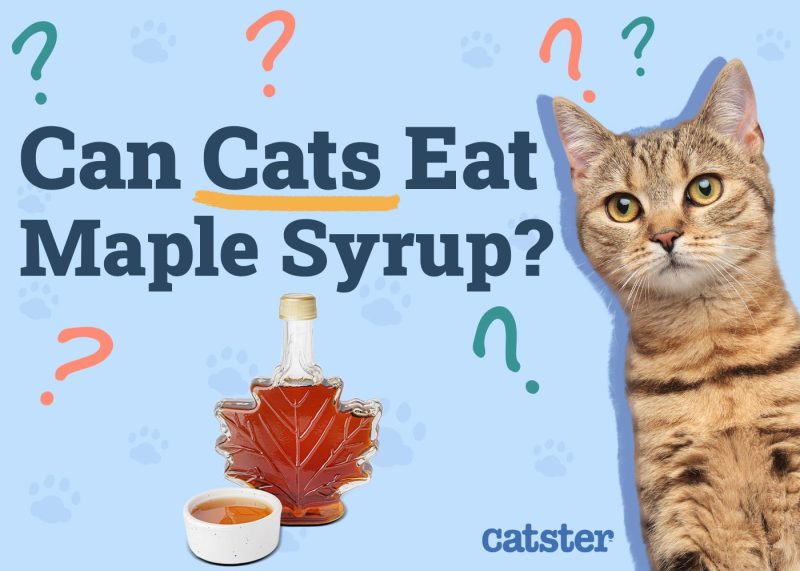In this article
View 3 More +Snake plants are charming, large-leafed plants that look stunning in almost any home setting. But sometimes when we mix plants and our household pets, it can be a recipe for trouble. Can you really blame them—look at how they bend! It’s like the plants are just asking for an attack from your cat’s point of view.
Cats like to get into things they aren’t supposed to, and some plants can be downright lethal to ingest. So are snake plants toxic to cats? Yes, they are toxic to both dogs and cats if ingested. Let’s learn about just how harmful these plants can be for our feline friends.

What Are Snake Plants?
The snake plant, or Sansevieria trifasciata, is an attractive house plant popular in many homes worldwide. They are native to tropical climates in West Africa. It is a hardy, beautiful plant that is easy to grow, even for beginners.
Snake plants grow upward in a tightly bound, pointed structure. Each leaf has its green hues and variations between seafoam and forest green. The leaves are stiff and crisp—not bendy or long-flowing. These plants can grow well in both low-light and high-light environments.
They sound like a dream for any plant-lover. However, when it comes to our feline friends, is the snake plant a good choice to have in the home? It depends—but if your cat likes to munch on other plants, you might want to keep this species off your list.
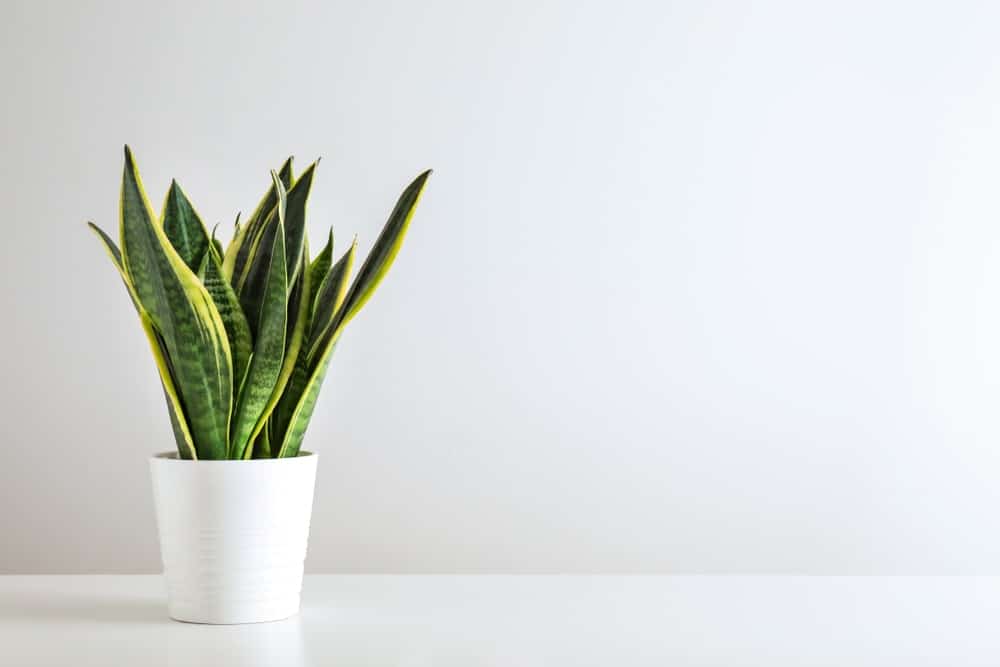
Snake Plants Are Toxic to Cats
So, we know that snake plants are toxic to cats and other household pets—but in what way? This plant won’t hurt anything if you only have it sitting in your home. Additionally, if your cat brushes against it with their fur, it won’t cause adverse reactions.
However, ingesting it is a problem. We all know that individual cats have a draw to houseplants—and another plant has likely paid the price before. The snake plant is not a smart choice for munching. It is highly toxic to both dogs and cats.
So, if you have a multi-pet household, know that dogs are even more adversely affected than cats.
What Happens if Your Cat Eats Snake Plants
An interesting side effect of snake plant-eating is numbness. There is a type of poison in the plant makeup that causes numbing and swelling of the throat and tongue. That can be really dangerous since it could potentially block your cat’s airway.
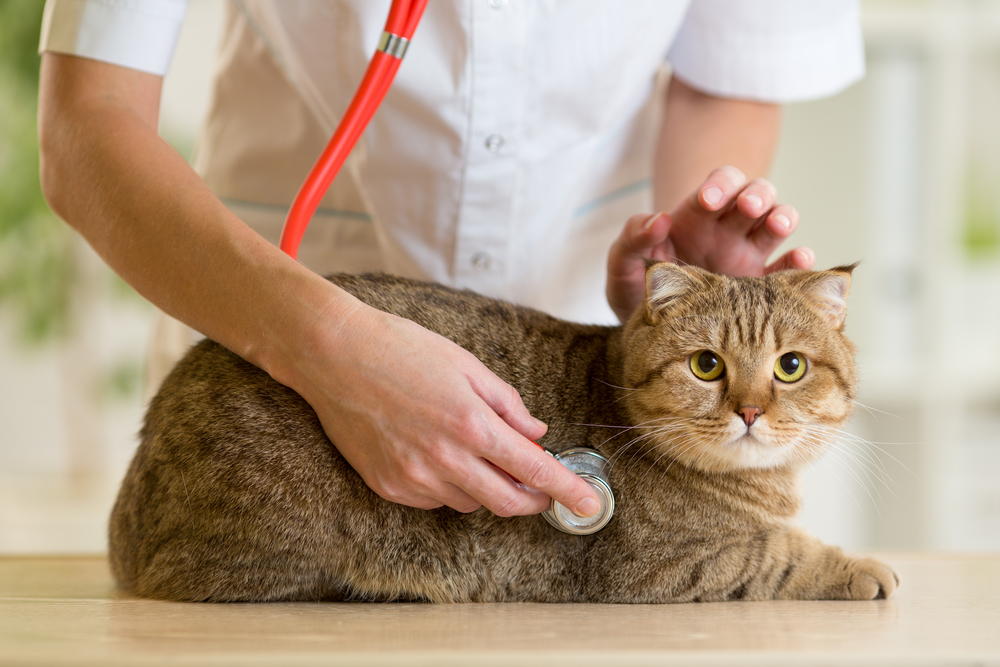
Signs of Toxicity in Cats
- Nausea
- Vomiting
- Diarrhea
When to See a Vet
Because of the toxicity in snake plants, you should get your cat to the vet if you know they’ve eaten a significant chunk. Even small portions can have extremely negative impacts on your kitty.
For future buying purposes, the ASPCA compiles a list of toxic versus non-toxic plants for pet owners.
If you need to speak with a vet but can't get to one, head over to PangoVet. It's an online service where you can talk to a vet online and get the advice you need for your pet — all at an affordable price!


Ways to Curb Houseplant Chewing
- Get your cat their plot of cat grass. For those kitties that absolutely love chewing up plants, you can grow their very own, 100% safe cat grass. Essentially it’s an organic blend of regular grass that has no toxic additives.
- Keep your plants in an unreachable space. If you can outsmart your cat, try to put your plants in a spot that they cannot access. We know this can be hard since cats are very determined.
- Try hanging baskets. If your ceilings are high enough and you don’t put the hanging baskets close to a perch that your cat can reach—these contraptions can be a blessing.
- Eliminate access to your plant room. Designate one room for your plants—and don’t let your cat in. Sure, they might be offended, but they will get used to it.
- Only buy cat-safe plants. Do your homework before bringing any fresh greenery home. If you can’t seem to separate your kitty from toxic plants, it’s best to stay away from them altogether. There are plenty of choices you have that won’t harm your cat at all.

Final Thoughts
You might get lucky and have a special place to keep your snake plant out of your cat’s sight. If there is no way your cat can contact it, there’s no reason you can’t grow one of these magnificent plants.
Remember that to curb your cat’s houseplant appetite, you might try getting their very own cat grass for chewing.
See Also:
- Is Oxalis (Shamrock Plant) Toxic to Cats? Vet-Reviewed Facts
- Are Jade Plants Toxic to Cats? Vet-Reviewed Houseplants Examined
- Are Gardenias Toxic to Cats? Vet-Reviewed Houseplants Explained
Featured image credit: Tanuj_handa, Pixabay
